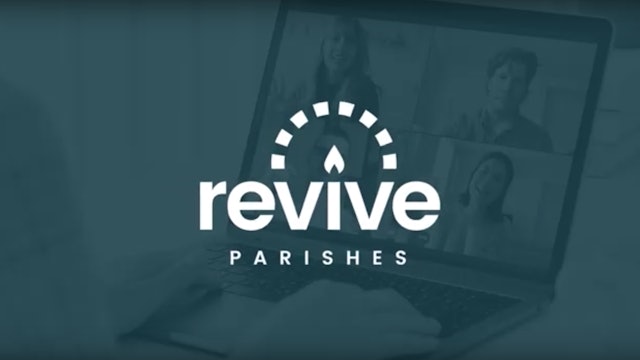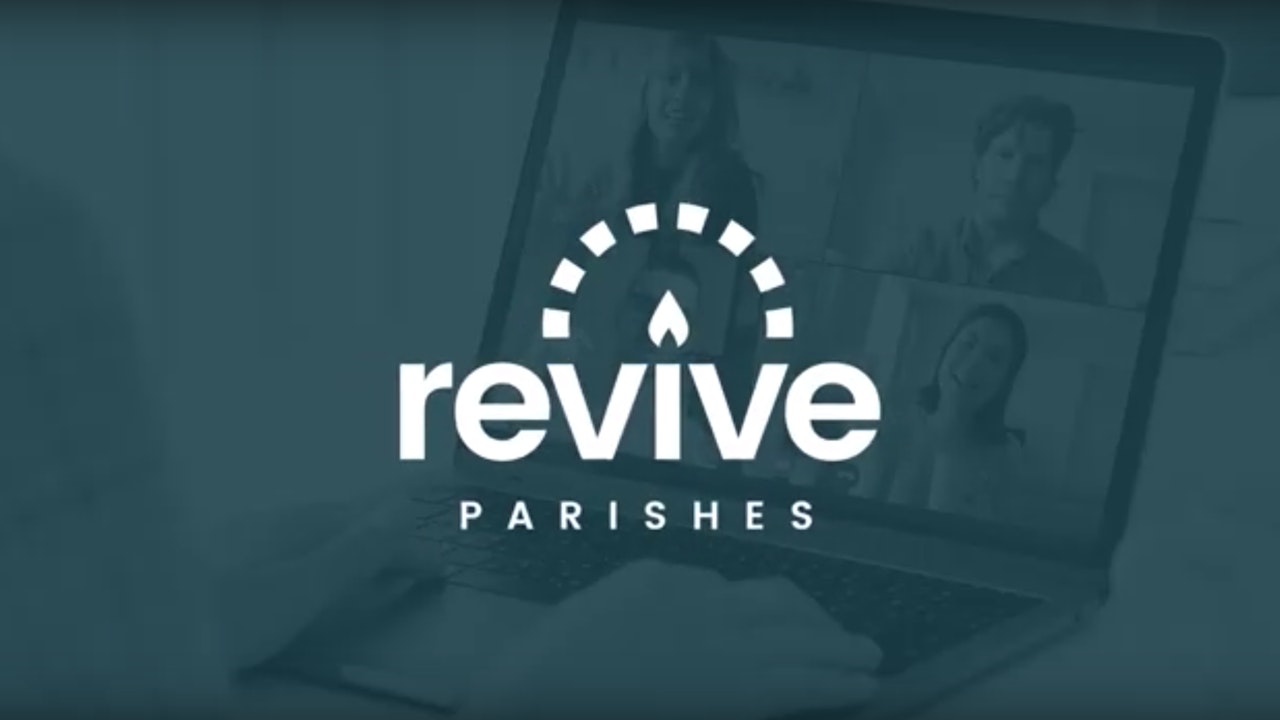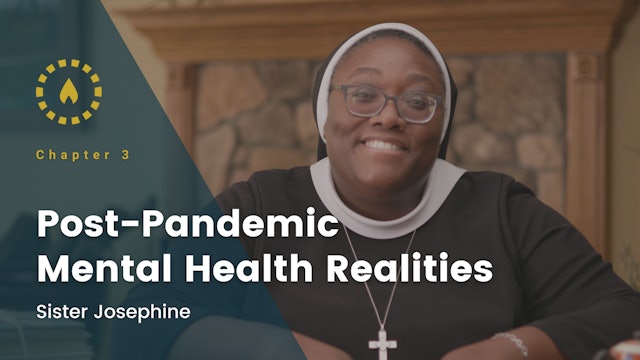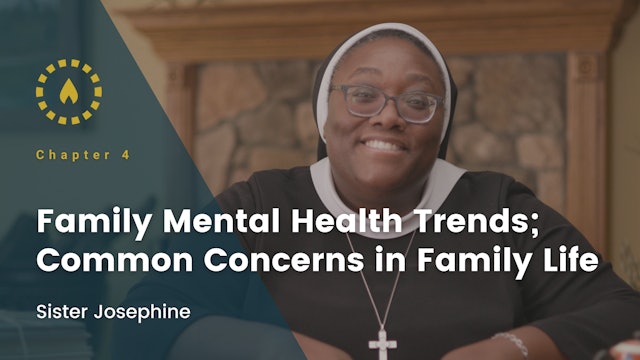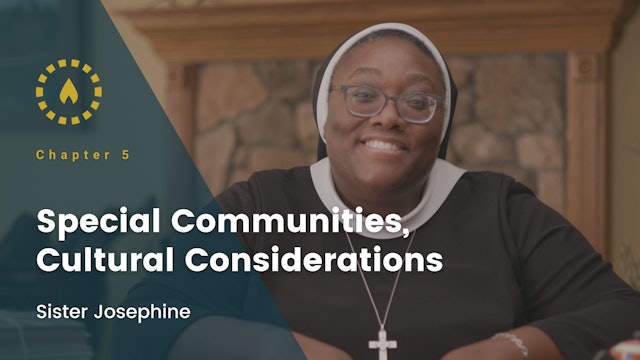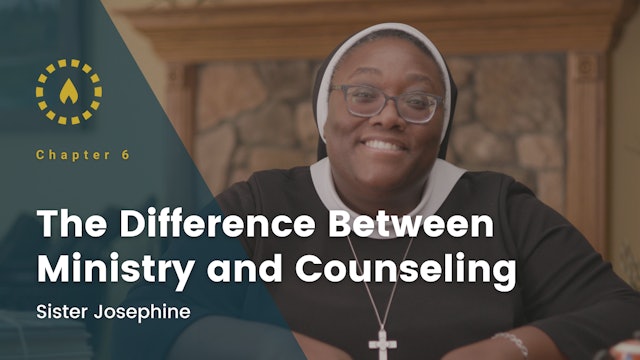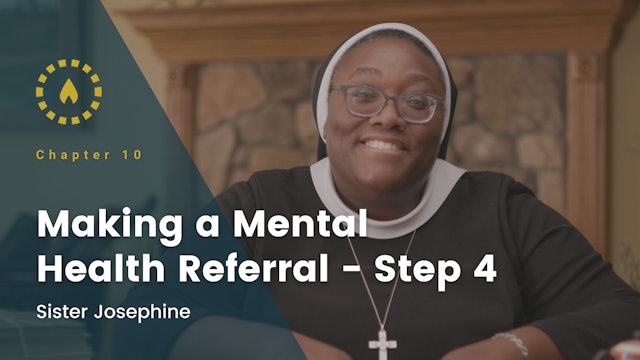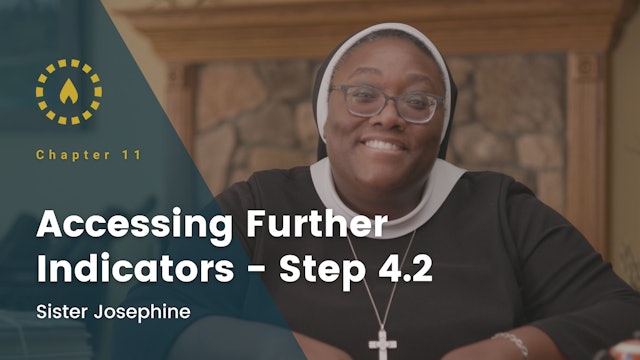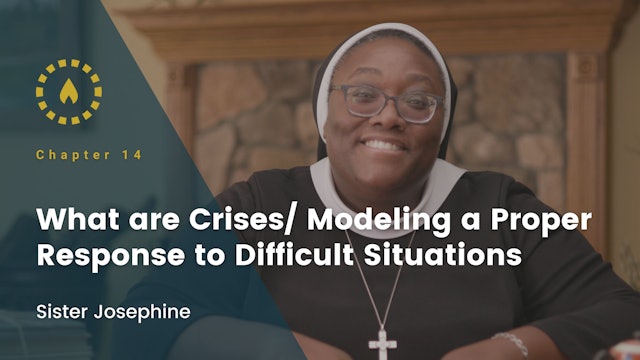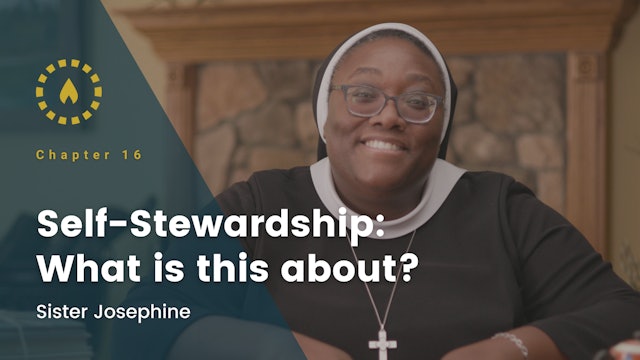Revive Parishes
5 Seasons
Revive Parishes was founded with a singular goal: to transform parish leaders so that they can revive their parishes. This may sound simple, but it is certainly not easy — and this is where the Holy Spirit comes in. With God’s help, your hard work and perseverance, and a little help and coaching from those who have gone before you… anything is possible. Welcome to Revive Parishes!
Founded by Dan Rogers, Edmundo Reyes, Tim Glemkoswki, and John Martin, Revive Parishes is now a proud offering of the Augustine Institute and is presented 100% free of charge for the benefit of the Church. In the coming years, this resource will continue to grow under this stewardship, and parishes around the world will continue to benefit from this incredible resource.
Each course on Revive was created with you in mind: to give you practical tips, suggestions, inspiration, and coaching on the most important issues facing Catholic parishes today. FORMED is proud to host a few of the lessons and courses on this platform for your viewing. To find all 18+ courses and lessons, go to reviveparishes.com.
-
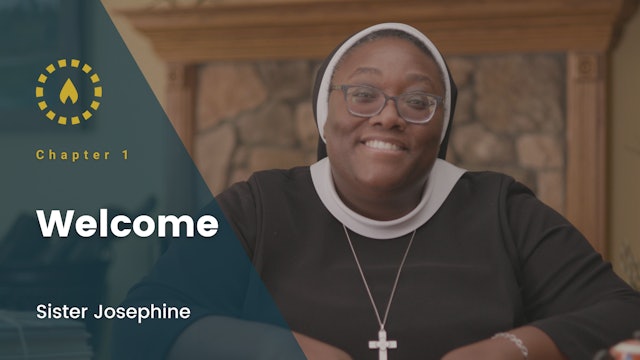 03:59Episode 1
03:59Episode 1Welcome | Chapter 1
Episode 1
When someone is struggling with their mental health, do you know how to minister to them? Mental Health concerns exist and are prevalent in every community your parish serves. in 5 adults experience mental health concerns, and 1 in 6 teens (age 12-17) reported a Major Depressive Episode in 2020. ...
-
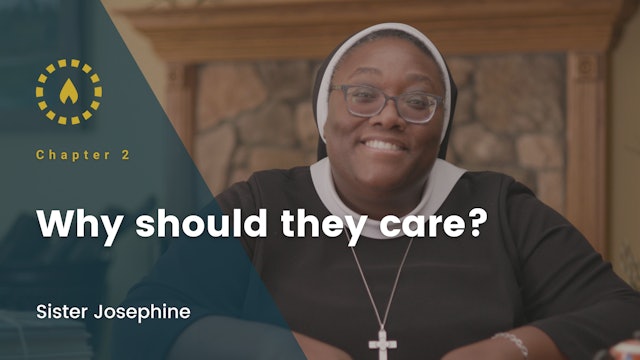 06:19Episode 2
06:19Episode 2Why Should They Care? | Chapter 2
Episode 2
Why do we need to talk about mental health? Sister Josephine lays the foundation of how ministering to one’s mental health is a vital aspect of ministering to the human person.
-
Post-Pandemic Mental Health Realities | Chapter 3
Episode 3
Sister Josephine guides us through the statistics of mental health realities in adolescents and adults as they currently stand. This will help us see how necessary it is to pay attention to these realities.
-
Family Mental Health Trends; Common Concerns in Family Life | Chapter 4
Episode 4
This chapter is a deep dive into the trends that exist in family life. This data will help us pay attention to the needs in our parish families.
-
Special Communities, Cultural Considerations (Rural, of Color, etc.) | Chapter 5
Episode 5
This chapter is a special look into the statistics on mental health for special communities. These are important considerations for different communities in your parish and allow us to meet them in their places of need.
-
The Difference Between Ministry and Counseling | Chapter 6
Episode 6
This chapter gives us a practical understanding of the difference between being a minister and a counselor. This will allow you to be confident in knowing what your role is, and when to make a referral to a counselor.
-
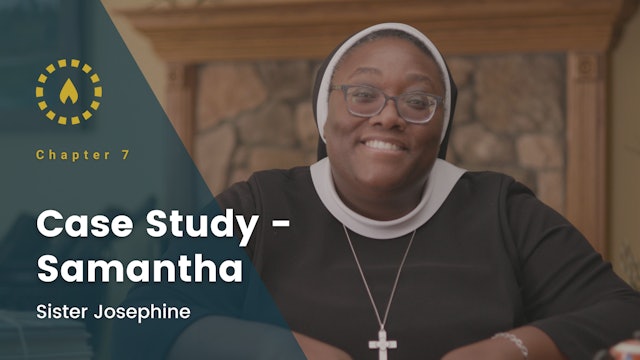 02:27Episode 7
02:27Episode 7Case Study - Samantha | Chapter 7
Episode 7
Sister Josephine guides us through a case study to help us practice the knowledge and boundaries we learned about in the previous chapter. In real-life scenarios in ministry, it can be more difficult to practice these boundaries or act when we are supposed to.
-
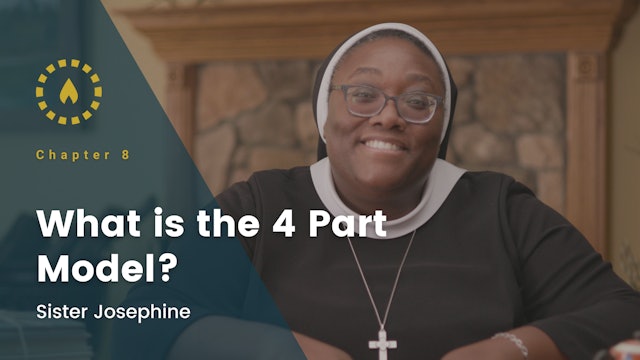 01:55Episode 8
01:55Episode 8What is the 4-Part Model? | Chapter 8
Episode 8
Sister Josephine gives us an overview of the 4 part model. She will explain how vital this model is vital to integrate into every part of your parish and ministry.
-
 09:47Episode 9
09:47Episode 9Steps 1 Through 3 | Chapter 9
Episode 9
In this chapter, Sister Josephine will walk us through steps 1-3 of the 4 part model. She will give us definitions, practical examples, and the tools to implement them in your parish or ministry.
-
Making a Mental Health Referral - Step 4 | Chapter 10
Episode 10
This chapter provides a deeper look into step 4 of the 4-part model. This step is the last step you would take, but one of the hardest. Sister Josephine will guide you through it with confidence and clarity.
-
Accessing Further Indicators - Step 4.2 | Chapter 11
Episode 11
Sister Josephine gives us extra tips to assess further indicators for mental health needs. These tips will prove practical and helpful when you encounter situations that can cause stress for ministers.
-
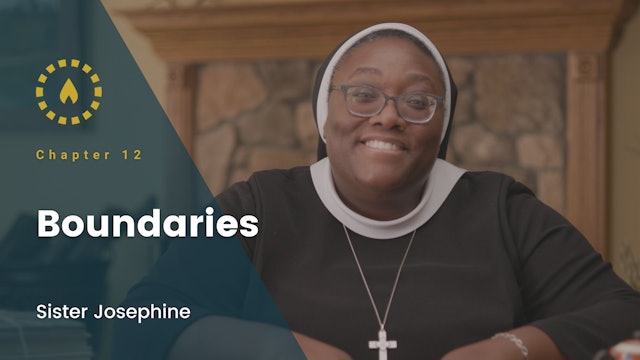 07:46Episode 12
07:46Episode 12Boundaries | Chapter 12
Episode 12
Sister Josephine lays out the boundaries you will need to hold as you minister to people’s mental health needs. This will protect not only you but the other as well.
-
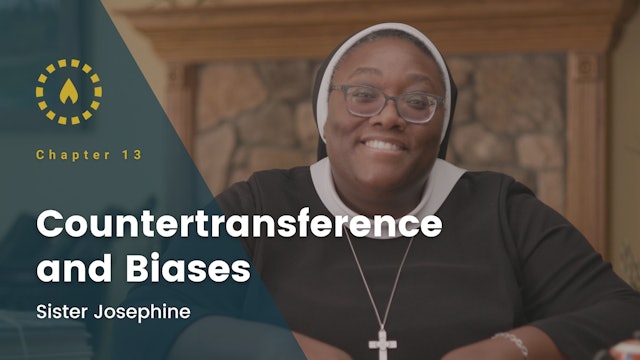 15:56Episode 13
15:56Episode 13Countertransference and Biases | Chapter 13
Episode 13
This chapter dives into a word many of us have never heard, but most will experience when we minister to a person and develop a relationship with them, particularly when we have our own issues or wounds that remain unresolved.
-
What are Crises/Modeling a Proper Response to Difficult Situations | Chapter 14
Episode 14
This chapter is incredibly practical and incredibly challenging. Sister gives us clarity and tools so that we know what to do and what not to do, what to say and what not to say, and what constitutes a crisis situation.
-
 13:20Episode 15
13:20Episode 15Tools for Responding Well | Chapter 15
Episode 15
Sister Josephine provides tools to respond to crisis situations so that you can encounter them with confidence and com
-
Self-Stewardship: What Is This About | Chapter 16
Episode 16
Rather than promoting “self-care”, which has been tainted by the culture, Sister Josephine promotes a new idea: Self-Stewardship. She discusses what this entails in this chapter.
-
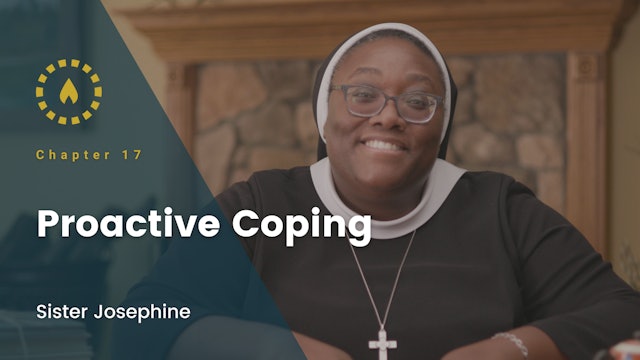 08:11Episode 17
08:11Episode 17Proactive Coping | Chapter 17
Episode 17
Proactive Coping is a part of self-stewardship. It is a vital practice for you as a minister and for every person you minister to.
-
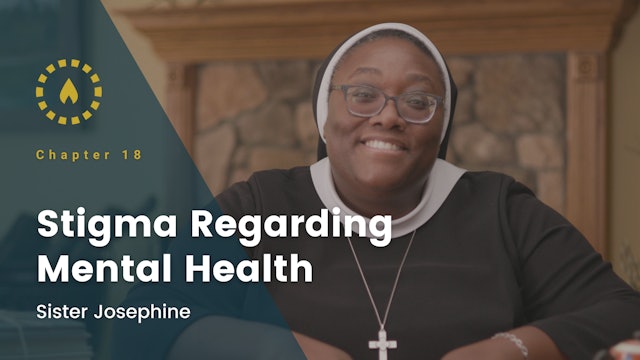 07:16Episode 18
07:16Episode 18Stigma Regarding Mental Health | Chapter 18
Episode 18
How can we battle the negative stigma that comes with admitting we have mental health needs? Sister gives a few very practical ways we can promote a culture of wellness - which includes the spirit, the body, and the mind.
-
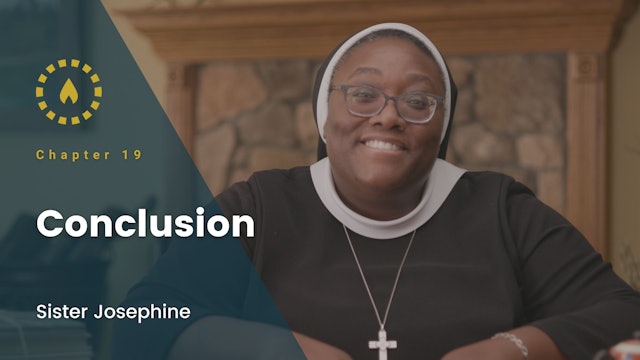 02:32Episode 19
02:32Episode 19Conclusion | Chapter 19
Episode 19
Sister Josephine wraps up the course with a word of encouragement and a few more practical tips for your everyday lives as ministers living in today's mental health crisis.

